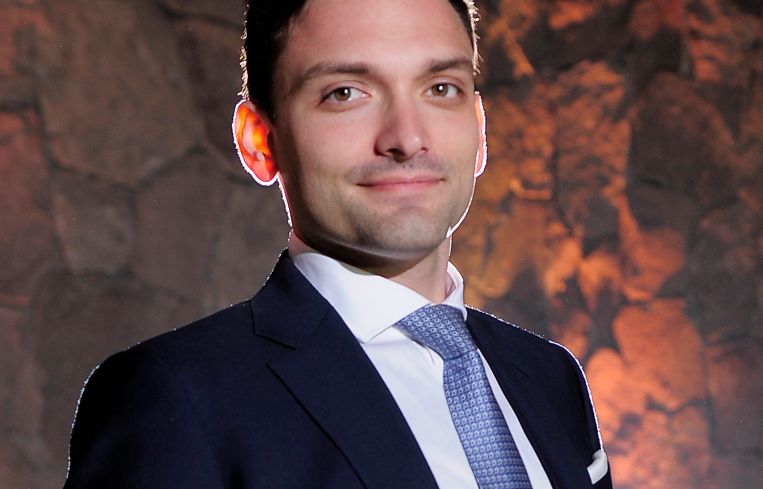Sebastian Rivas Taking the Headache Out of Short-Term Rental Investments
By Mark Hallum July 29, 2022 1:12 pm
reprints
A brokerage fee and a slice of the profits is all Andes STR takes from investors hoping to buy into short-term rental properties. The rest seems easy — at least on the investment side.
Sebastian Rivas is the CEO of Andes STR, a short-term rental management and investment firm. Rivas believes the future of housing is in short-term rentals as remote workers realize a more fluid way to live, setting up camp wherever they want while still holding down jobs.
The Houston-based company doesn’t just invest in vacation rentals; it’s also making them available to individual or small investors as investment properties. The individual owns the property, while Andes STR takes care of the rest.
Andes STR and WEG Capital recently announced that they have raised a $25 million fund to buy up single-family homes bound for the short-term rental market with emphasis on the Orlando, Fla., area for its year-round demand for Airbnb-style accommodations.
CO: How does investing with Andes STR work?
Sebastian Rivas: We use our proprietary machine learning technology to find the best properties that are going to be the most profitable, and this algorithm works remarkably well. Then assuming that the investor — the customer — is OK with the investment, then we execute everything on their behalf. So we’ll buy the property for them, find financing for them, furnish and manage everything. So it’s almost like buying a one-property REIT. It’s like a fund, but you own everything.
What markets does Andes STR target for its clients?
We buy and manage many different types of assets. So single-family homes, multifamily buildings, condos, townhouses, small hotels; we’re very much agnostic on the type of property, the type of asset. What we really care about, though — and this is one of the really strict requirements — is the underwriting process. What that means is, in any market where we open and operate, we need to have a strong thesis about it. We need to feel very confident that this is a good investment, because we’re selling investments, right?
We don’t just go and manage properties. That’s not what we do. We also manage properties but it’s not what we do. Part of that thesis is the location, so some places like Toronto, for instance, we love downtown condo buildings, really good assets. They perform super well. Most people who go there have the highest willingness to pay for accommodation. Very efficient, high returns, low risk, very optimal.
What’s an example of a different kind of market that you invest in?
Orlando, for instance, is the opposite [of Toronto]. So condos and multifamily don’t work that well in general; there are too many of them. But big houses, they’re awesome. So in Orlando, we like Orlando for many reasons. But then on top of that within Orlando, we like single-family homes.
How does the investment process work for your clients?
We have three products. One of them is for individual investors. The vast majority of people just buy one [property]. And then we have something called separate managed accounts, and those are basically like little funds that we make for a select set of people. So let’s say you have some money saved up and you want to bring in your parents, your brother, your friend for all of you guys to create one vehicle, and we manage everything for that vehicle. And it’s like having a personalized fund. Then the third one is we usually also work with large asset managers to launch funds, and that’s the one that was highlighted in the Wall Street Journal recently.
There is comparable difficulty between getting a mortgage for a home you’ll live in versus a rental property. How does your company get through some of the red tape with lenders?
If we’re talking about individual investments, then what we do is we first talk to the investor. We create an investor profile and then we figure out whether that investor has a better access to debt than what we can offer. If we see that their terms are better than what we can get, we kind of take it over and start working with their bankers. More often than not, we can get them better terms. So at that point, we have a network of partner lenders that give us preferential terms because basically they know the results that we get. They know that we manage the property and they know that we only pick the best performing asset, so it’s lower risk. Therefore they can give us better pricing.
When it comes to using apps like Airbnb, are there any concerns about the stability of Airbnb as a business, and how does that affect you?
There is but it’s highly mitigated, and the reason is that when we’re marketing or listing these properties. We’re what’s called “multi-homers.” And what that means is that we have homes on many, many different platforms. For instance, in Toronto, the best platform there is not even Airbnb. It’s actually Booking.com. That’s the most profitable one. In Orlando, VRBO is very big. Galveston, in Texas, it’s actually Airbnb. There are over 500 of those platforms, at least five of them are huge. So if anything happens to one of them, it wouldn’t make much of a difference.
Mark Hallum can be reached at mhallum@commercialobserver.com.



